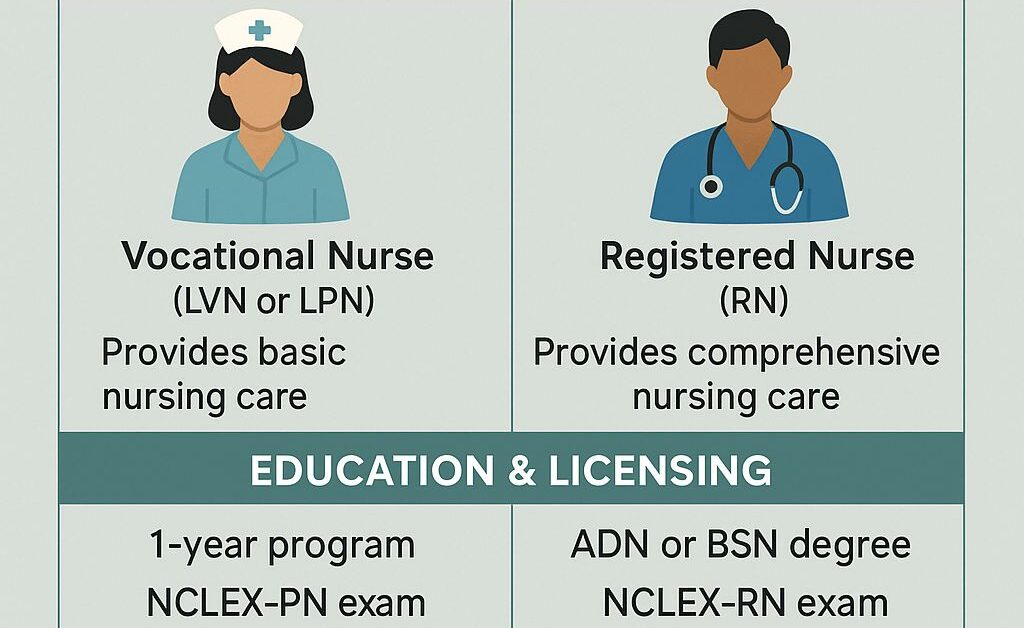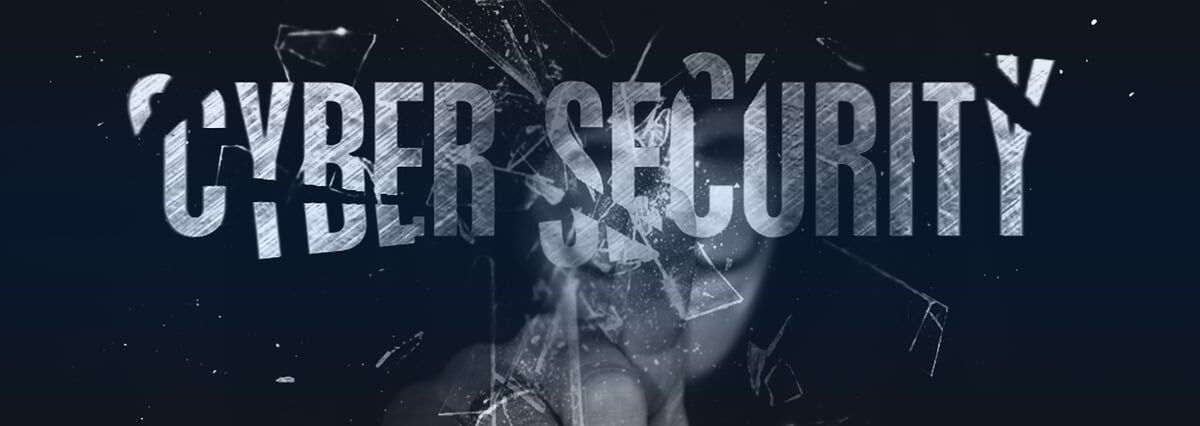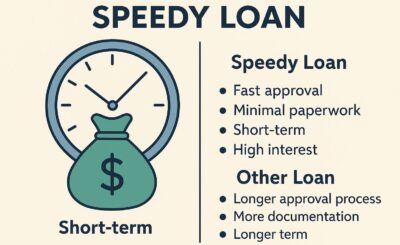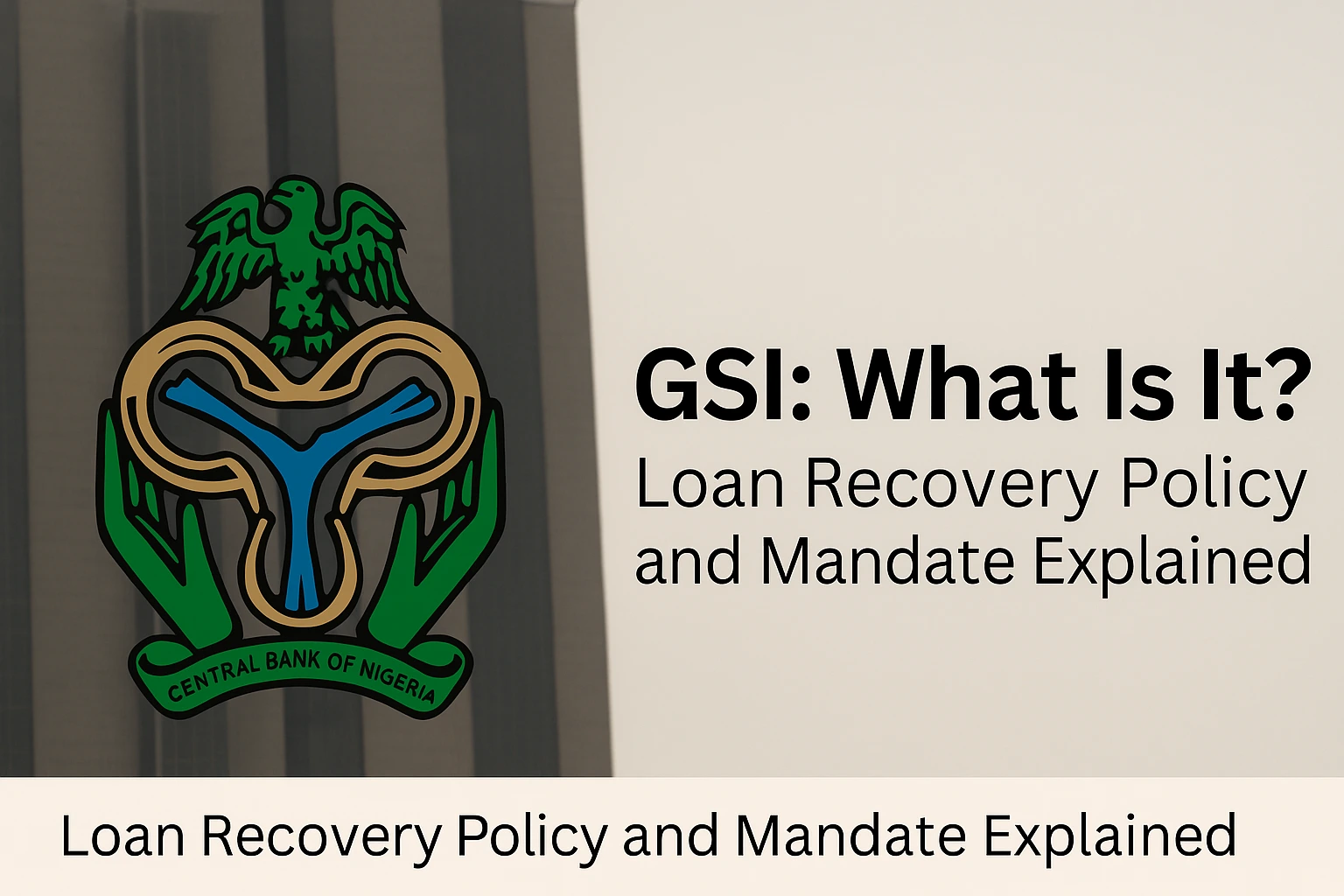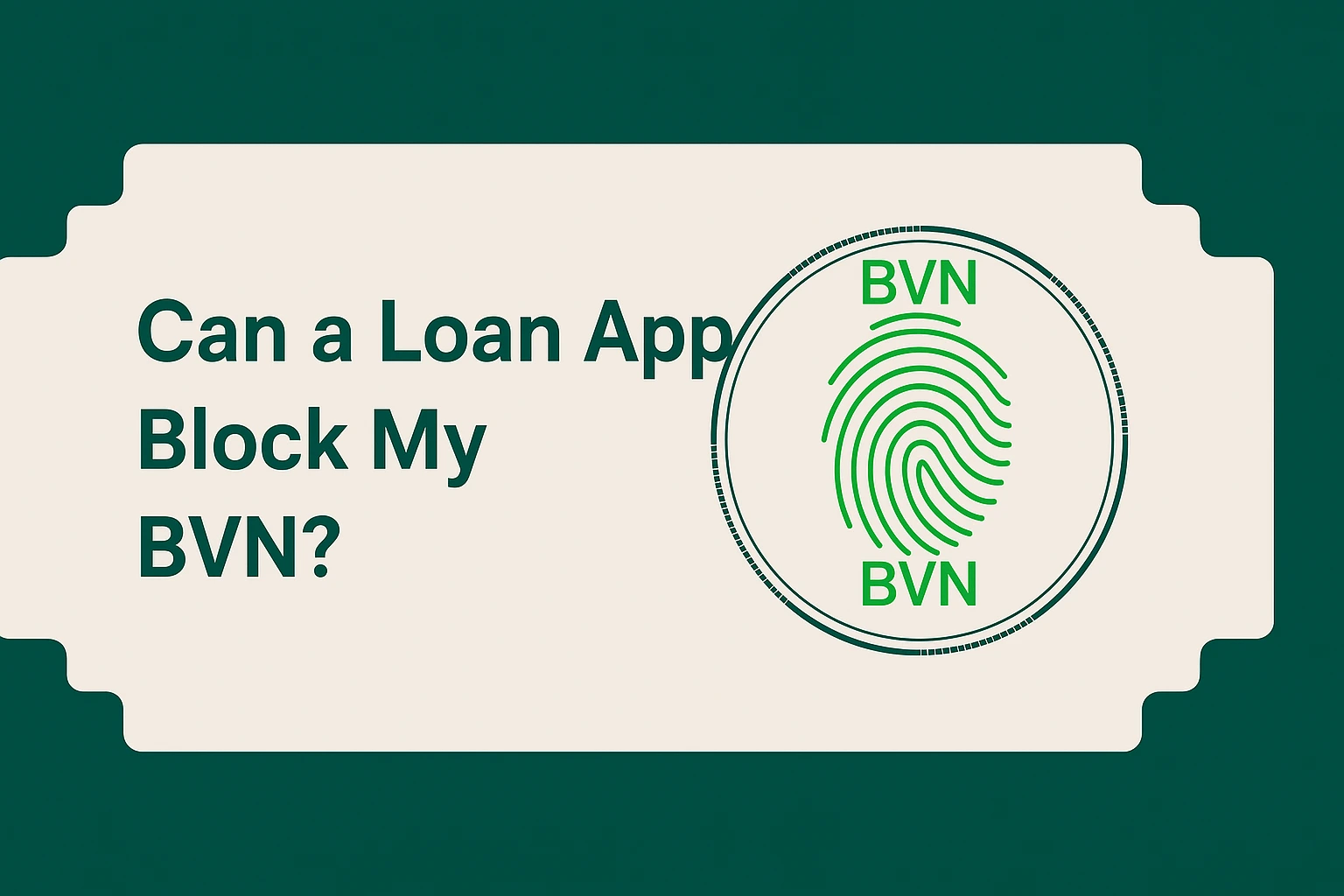GSI (Global Standing Instruction) is an important tool used by Nigerian banks to recover unpaid loans across all Nigerian bank accounts. But can you stop GSI recovery? Here, we will explain what GSI recovery is, how it works, and how to stop GSI recovery legally in Nigeria.
Let’s get started.
Read more: GSI: What Is It? Loan Recovery Policy and Mandate Explained (2025 Update)
What Is GSI Recovery?
GSI recovery is a loan recovery system introduced by the Central Bank of Nigeria (CBN) in 2020 to help banks recover unpaid loans.
How GSI recovery work
The Global Standing Instruction (GSI) recovery process is an automated mechanism that enables Nigerian banks to recover overdue loans directly from a borrower’s accounts across all banks within the country. This system is designed to discourage loan defaults and improve credit discipline. Here’s a clear step-by-step breakdown of how GSI recovery works:
Borrower Signs GSI Mandate:
At the point of taking a loan, the borrower is required to sign a GSI mandate. By doing so, the borrower authorizes the lending bank to recover any overdue loan amounts from their accounts held in any Nigerian bank. This consent is given upfront, ensuring that the bank does not require any further legal process to initiate recovery if the borrower defaults.
Loan Default Occurs:
If the borrower fails to repay the loan as scheduled — whether through missed payments or complete non-payment — the lending bank initiates the GSI recovery process. The process is typically triggered only after the loan enters default status, as defined in the loan agreement.
NIBSS Triggers GSI Process:
Once the lending bank triggers the recovery, a GSI request is sent via the Nigeria Inter-Bank Settlement System (NIBSS). NIBSS acts as a central hub that coordinates the communication between banks. This request is forwarded to all other banks in Nigeria where the borrower holds accounts.
Automatic Account Sweep:
Upon receiving the GSI request, each bank is required to check the borrower’s accounts — whether savings, current, or fixed deposit. If funds are available, the banks must automatically debit or sweep those funds and remit them to the lending bank to cover the overdue loan amount.
This sweeping process continues until either the entire outstanding debt is fully recovered or the available funds across all accounts are exhausted. The borrower has no control over which accounts are debited, as the process is fully automated and governed by the initial GSI mandate.
Notifications:
Throughout the process, the borrower is notified of any deductions made from their accounts. The originating bank — the one that granted the loan — receives the recovered funds through this automated channel. If the recovered amount is partial, the bank may initiate another GSI trigger at a later date to recover the balance.
When you take a loan from any Nigerian bank, you are required to sign a GSI mandate that links your Bank Verification Number (BVN) to that loan. This gives your lender the right to:
- Monitor your other bank accounts (savings, current, fixed deposit) across different banks.
- Automatically debit funds from those accounts if you fail to repay your loan.
Example:
If you borrow from Bank A and stop repaying, Bank A can trigger GSI recovery and collect money from your Bank B and Bank C accounts — even if you moved your money there to avoid repayment.
Read more: CBN GSI Loan Recovery Policy and Mandate Explained
Why Would You Want to Stop GSI Recovery?
The Global Standing Instruction (GSI) is a strict loan recovery tool, and while it protects the banking system, it can also create serious challenges for borrowers. In some cases, borrowers may have valid reasons to want to stop GSI-triggered deductions from their accounts.
Here are some of the most common reasons why Nigerian borrowers seek to stop GSI recovery:
1. Facing Temporary Financial Hardship
Life happens — and sometimes borrowers encounter unexpected financial challenges such as job loss, medical expenses, or emergency family obligations. In such cases, automatic deductions triggered by GSI can worsen the situation, making it harder to recover financially.
2. Incorrect or Unauthorized Deductions
In some cases, banks may trigger GSI incorrectly, either due to technical errors or poor internal communication. Borrowers have reported cases where:
-
Deductions continued after the loan had been fully repaid.
-
Deductions were made from protected funds (such as salary accounts under specific legal protection).
-
Deductions exceeded the amount still owed.
3. Wanting to Renegotiate Loan Terms
Some borrowers may want to stop or pause GSI recovery while they renegotiate loan terms with their bank. This is especially common when borrowers need longer repayment periods or want to restructure their loans due to reduced income or changed financial circumstances.
4. Already Repaid the Loan, but Deductions Continue
One of the most frustrating situations is when borrowers have already paid their loans in full — but the bank fails to deactivate the GSI mandate, resulting in ongoing, unauthorized deductions.
5. Protecting Critical Income Sources
Many self-employed Nigerians and small business owners maintain multiple bank accounts to manage different income streams. In some cases, automatic GSI-triggered deductions can disrupt critical business operations, payroll, or family obligations — leading to legitimate concern.
Important Note
It is important to understand that once you take a loan and sign the GSI mandate, you cannot simply “opt out” of GSI recovery. The system is designed to follow your BVN across all banks. However, there are responsible and legal ways to stop GSI recovery — and we will cover them below.
Read more: How to Stop Loan App from Calling and Harassment: A Complete Guide
Can You Stop GSI Recovery?
The short answer is: Yes — but only through the proper legal and formal channels.
GSI (Global Standing Instruction) is not an informal bank policy — it is a CBN-backed loan recovery mechanism with clear regulatory guidelines that banks are legally required to follow. Once you sign a GSI mandate as part of your loan agreement, the GSI remains active and enforceable until your loan is completely cleared — meaning all outstanding principal, interest, and fees have been fully repaid.
See Also: How GSI Affects Borrowers
Once activated, GSI is designed to follow your Bank Verification Number (BVN) across all accounts you hold in Nigeria. It is a cross-bank recovery tool — meaning you cannot simply close one account or move your funds to a new bank to escape repayment.
See Also: Why Was the GSI Introduced?
How to Stop GSI Recovery: Legitimate Ways to Stop GSI Recovery in Nigeria 2025
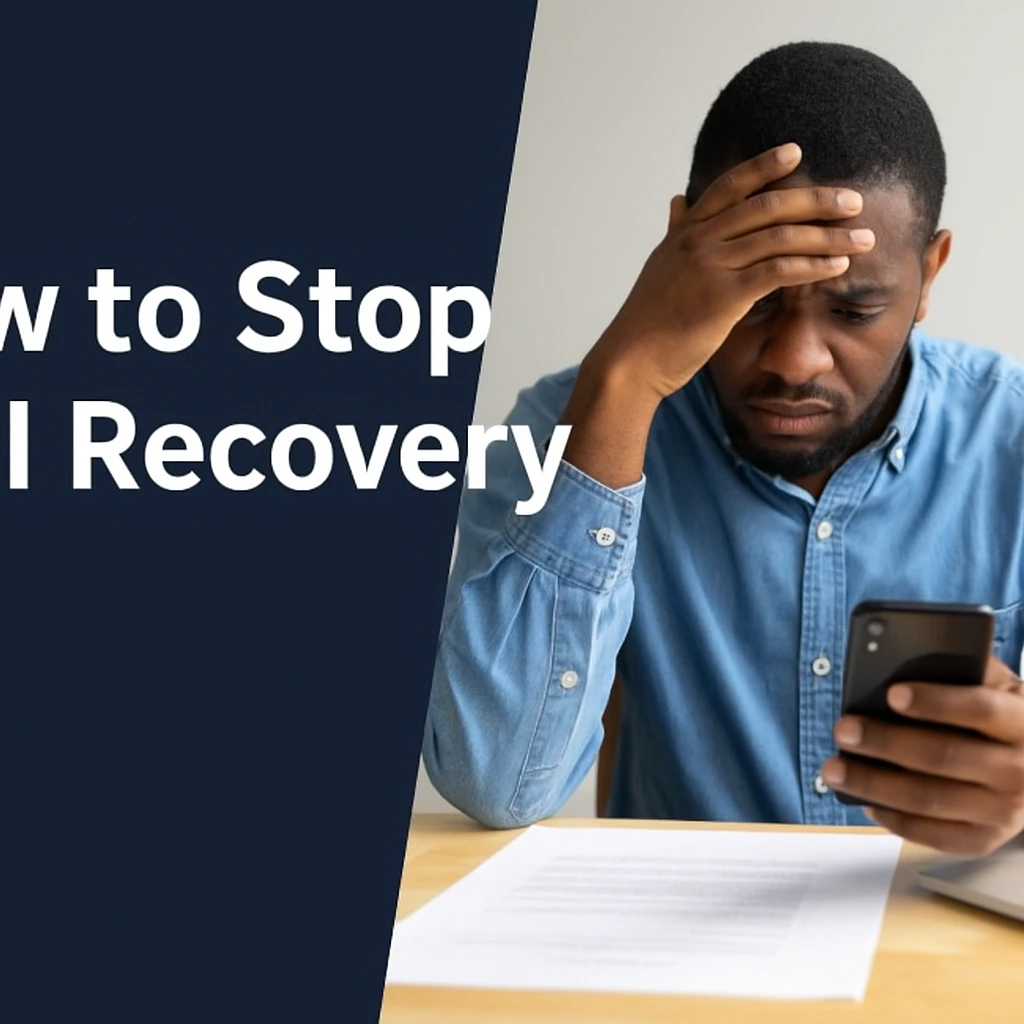
While the Global Standing Instruction (GSI) is a powerful and automated loan recovery tool, Nigerian borrowers do have legitimate and legal ways to stop or challenge GSI deductions — but only through proper channels. Here’s a detailed method you can use to stop GSI recovery in 2025:
1. Full Loan Repayment
The first and most effective permanent way to stop GSI recovery on our list is by fully repaying your loan. This involves settling the principal amount, all accrued interest, and any applicable fees or penalties. Once the loan is completely cleared, the GSI mandate linked to that specific loan is automatically deactivated by the bank. After full repayment, your loan account will be closed, the GSI authorization removed, and no further automatic deductions will occur from your bank accounts. This ensures peace of mind and restores full control over your finances.
Pro Tip:
Always request a loan clearance letter or loan closure confirmation from your bank after making your final repayment. This official document serves as proof that your loan obligation has been fulfilled and can help you resolve any future GSI-related issues.
Additionally, monitor your accounts for a few weeks after full repayment to ensure no further deductions are made in error. If they are, you can immediately contest them.
2. Negotiate Loan Restructuring With Your Bank
Another way to stop GSI recovery is to proactively negotiate a loan restructuring with your bank. If you are experiencing temporary financial hardship, it is crucial not to ignore the situation or attempt to shield funds. Instead, contact your bank early and explain your circumstances. You may request a loan restructuring (such as extending your loan term to lower monthly payments) or a temporary repayment moratorium (a pause of 1–6 months on repayments and GSI activation). If approved, the bank can temporarily suspend the GSI trigger and adjust your repayment terms to align with your current financial capacity. Taking a transparent and cooperative approach greatly increases the likelihood of a favorable outcome and helps you avoid unexpected account sweeps via GSI.
Banks are more likely to cooperate with borrowers who are transparent and willing to find a solution, rather than those trying to evade payment.
3. Dispute the GSI Recovery and Seek a Stop and Reversal of Funds.
Although the GSI system is designed to automate legitimate loan recoveries, errors can occasionally occur. In some instances, GSI may be triggered incorrectly, leading to unauthorized deductions—like continued deductions after a loan has been fully repaid, deductions that exceed the actual outstanding loan balance, or deductions made without the proper notifications required by CBN guidelines.
See Also: How GSI Protects Nigerian Banks
If you believe a GSI deduction was made in error, immediately contact your bank’s customer care or notify your bank in writing—via email or an official letter—providing supporting evidence and requesting an urgent investigation. If the bank fails to resolve the issue or provide a satisfactory response within the required timeframe, escalate your complaint to the CBN Consumer Protection Department (CPD), which actively intervenes in GSI disputes.
You may also seek independent legal advice to safeguard your rights. Remember, under CBN GSI guidelines, banks must provide prior written notification, issue clear statements for each deduction, and respect legal limits regarding which accounts and amounts can be debited. If these procedures are not followed, you may have grounds to dispute the recovery and seek a reversal of funds.
Final Note: Work With the System, Not Against It
It’s crucial to understand that trying to “escape” or bypass GSI recovery through illegal means — such as moving funds to third-party accounts, opening new bank accounts, or attempting to hide income — can result in:
-
Being blacklisted in the Nigerian banking system.
-
Facing legal action by your lender.
-
Severely damaging your credit profile, which may prevent you from accessing future loans or financial services.
The best and safest course of action is to engage your bank through the appropriate legal processes if you are struggling or if a mistake has occurred.
What Can Not Stop GSI Recovery
It’s a common misconception that you can escape GSI deductions by simply moving your money around or closing bank accounts. Unfortunately, these tactics not only fail to stop the recovery process but can also lead to even more severe consequences. The Global Standing Instruction (GSI) is linked to your Bank Verification Number (BVN), which serves as a unique identifier across all your Nigerian bank accounts. This means that even if you transfer your funds to a new account or open an entirely different account at another bank, GSI can still be activated to withdraw from those funds.
Closing your existing account also won’t work. Any new account you open under the same BVN remains subject to GSI enforcement. Additionally, some borrowers try to use third-party accounts—such as those of friends or relatives—to temporarily store funds. This is considered fraudulent behavior, and banks have monitoring systems in place to track unusual fund movements. If they detect attempts to divert funds or conceal assets to avoid repayment, they may initiate legal action against you.
Attempting to evade GSI recovery can seriously harm your financial standing. Your credit score could take a major hit, making it difficult for you to secure future loans, access certain financial services, or even qualify for employment in regulated industries. You may also find yourself blacklisted by financial institutions, limiting your access to credit across Nigeria. In extreme cases, banks may escalate the matter, resulting in lawsuits or even criminal charges.
Borrower Rights Under CBN Guidelines
Despite the powerful reach of GSI, borrowers are not without rights. The Central Bank of Nigeria (CBN) has established a number of consumer protection guidelines to ensure that the system is not abused. First, banks are required to notify borrowers before activating GSI, giving you a chance to address the issue or respond. Additionally, all deductions made through GSI must be transparent and well-documented so borrowers can track the source, amount, and purpose of each withdrawal.
If you feel a deduction was made in error—or if you didn’t receive adequate notice—you have every right to dispute it. Start by contacting your bank in writing and requesting a formal investigation. If your issue remains unresolved or if the bank fails to act, you can escalate your complaint to the CBN Consumer Protection Department (CPD). It’s also wise to keep thorough records of all your loan agreements, repayment receipts, and any correspondence with your bank to support your case if needed.
Risks of Trying to Stop GSI Recovery Illegally
Trying to stop GSI recovery through illegal or dishonest means is a strategy that almost always backfires. You could be reported to the CBN, flagged within Nigeria’s credit reporting system, and blacklisted across multiple financial institutions. This not only ruins your chances of securing future loans but also affects your overall financial credibility.
In addition to reputational damage, legal consequences may follow. Banks may sue to recover the debt or report you to law enforcement if fraud is suspected. What begins as an attempt to avoid a deduction can quickly spiral into a costly legal battle and a permanent stain on your financial record.
The smarter and safer approach is to engage your lender proactively. If you’re going through financial hardship, explain your situation and request a loan restructuring or temporary moratorium. Most banks are open to working with borrowers who show a genuine commitment to repay. Transparency and cooperation are far more effective—and far less risky—than trying to outsmart a system that is legally and technologically designed to ensure repayment.
Conclusion
GSI recovery is a powerful tool designed to reduce loan defaults in Nigeria. While you cannot unilaterally “stop” GSI recovery, you do have legitimate options:
- Repay your loan in full.
- Negotiate new terms with your bank.
- Dispute incorrect deductions properly.
Remember: GSI will remain active until your loan is fully repaid — this is now a permanent policy as per the latest CBN circular.
Always act responsibly with your loans. If you need help, contact your bank first — many lenders are willing to work with borrowers who are transparent and cooperative.
Frequently Asked Questions (FAQ)
Can I close my bank account to stop GSI?
No. GSI is linked to your BVN. Closing one account will not stop the bank from recovering funds from your other accounts.
What if GSI deducts money from my salary account?
If the deduction violates CBN’s guidelines (such as leaving your account with zero balance or seizing protected income), you can file a complaint and request a reversal.
How long does GSI recovery last?
GSI remains active until the full loan amount (principal + interest) is repaid.
Can I challenge GSI deductions in court?
Yes — if deductions are unlawful or violate your loan agreement, you can seek legal redress.
Who can I contact if I have problems with GSI?
Start by contacting your bank’s loan recovery department. If unresolved, escalate your complaint to the CBN Consumer Protection Department.
Read more about it: GSI: What Is It? Loan Recovery Policy and Mandate Explained (2025 Update)


